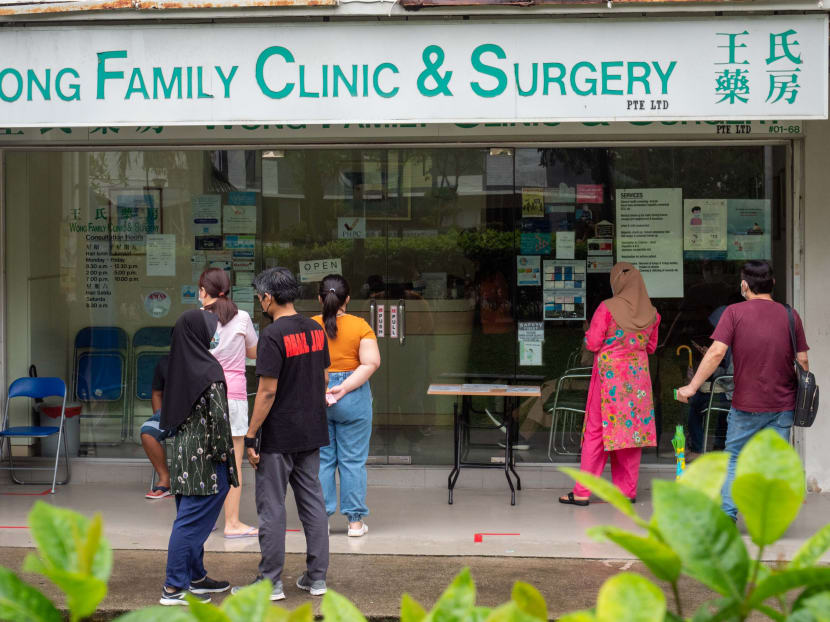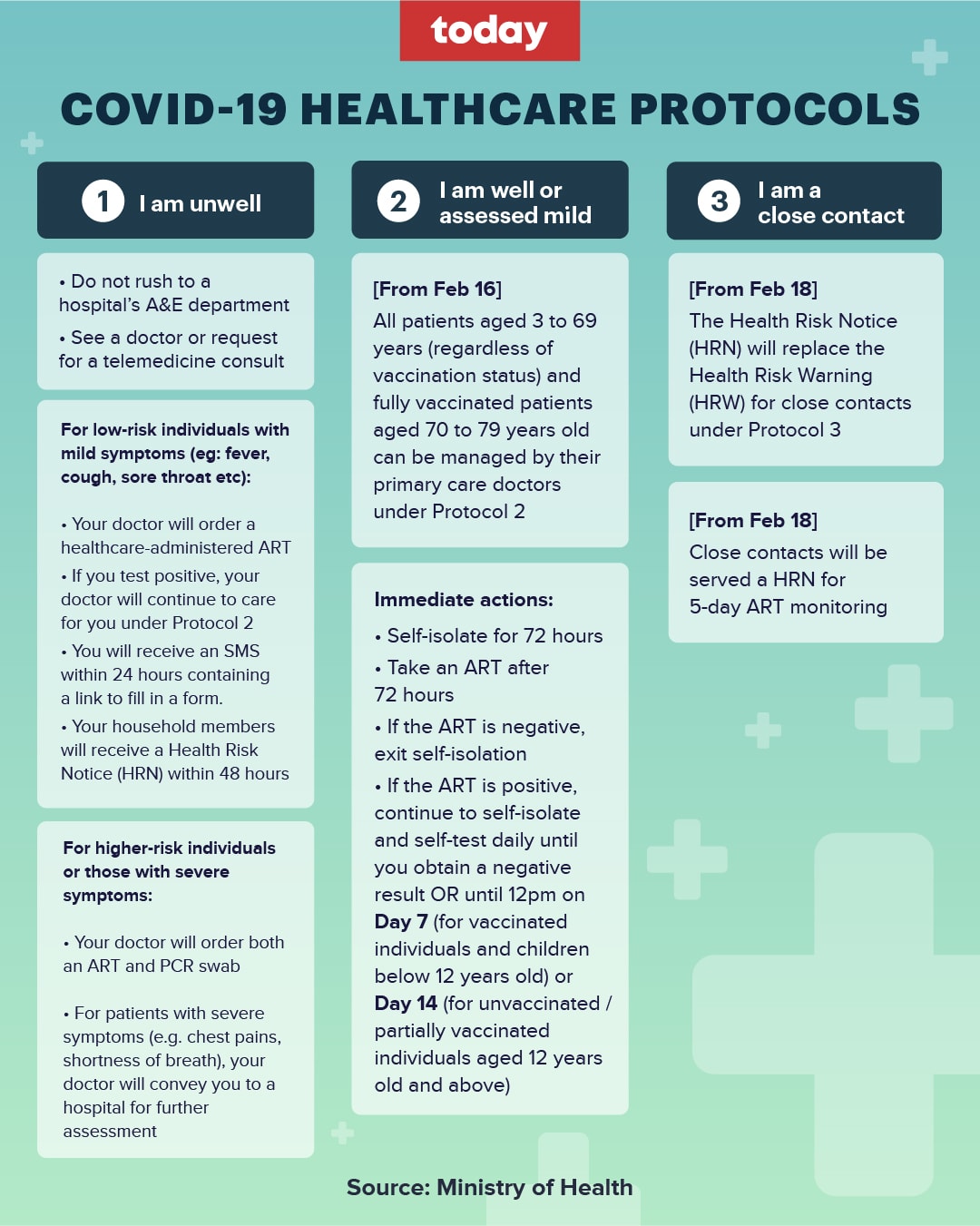More Covid-19 patients can be managed by GPs, including all aged 3 to 69 regardless of vaccination status
SINGAPORE — More Covid-19 patients can be managed by their primary care doctors under Protocol 2 regardless of vaccination status, the Ministry of Health (MOH) announced on Wednesday (Feb 16), while close contacts of infected individuals can expect to undergo shorter self-monitoring periods.

SINGAPORE — More Covid-19 patients can be managed by their primary care doctors under Protocol 2 regardless of vaccination status, the Ministry of Health (MOH) announced on Wednesday (Feb 16), while close contacts of infected individuals can expect to undergo shorter self-monitoring periods.
Effective Wednesday, all Covid-19 patients aged three to 69 regardless of their vaccination status, as well as older patients aged 70 to 79 who are fully vaccinated, can be managed by their primary care doctors under Protocol 2.
Before this, only fully vaccinated patients between the ages of five and 69, or non-fully vaccinated patients aged five to 49, could be managed under Protocol 2.
Protocol 2 cases are people who test positive for Covid-19 and are well, or have been assessed by a doctor to have a mild condition.
Under Protocol 2, patients with a positive antigen rapid test result must isolate themselves for 72 hours and can leave their home only after the third day of isolation if they test negative for Covid-19.
Explaining the expansion of age groups under this healthcare protocol, MOH said that the vast majority of patients from most age groups infected since January experienced mild symptoms and can recover safely on their own. These include older patients.
“For example, among seniors aged 60 to 69 years who were infected, only about 0.5 per cent of fully vaccinated and 1.8 per cent of non-fully vaccinated patients were treated as severe cases,” MOH said in a statement on Wednesday.
Among vaccinated patients aged 70 to 79, only 1.2 per cent fell severely ill.
For young children, 4.5 per cent of those aged three to four taken to emergency departments required admission, and less than 1 per cent on MOH's Home Recovery Programme required further management.
In line with the latest changes, patients under Protocol 2 with non-emergency conditions are strongly advised to avoid seeking treatment at hospital emergency departments. They are advised to consult their primary care doctors or telemedicine providers should they require any medical assistance.
“Individuals with non-emergency conditions turning up at emergency departments may be diverted to other urgent care clinics for further assessment, so as to prioritise emergency department resources for patients requiring acute care,” MOH said.
Patients may also be diverted for admission to Covid-19 treatment facilities for further monitoring of their medical condition, as long as they do not require hospitalisation, it added.
PROTOCOL CHANGES FOR CLOSE CONTACTS
Revisions were also announced for close contacts of Covid-19 patients.
At the moment, close contacts of positive cases identified by MOH are placed on Protocol 3. They would be close contacts of Protocol 1 patients or of Protocol 2 infected individuals identified by primary care doctors.
Beginning from Feb 18, these close contacts will receive a health risk notice advisory instead of a health risk warning order from MOH.
The self-monitoring period for these individuals will also be reduced from seven days to five days, owing to the shorter incubation period of the Omicron coronavirus strain.
However, MOH emphasised that all individuals who are aware of their recent exposure to a Covid-19 patient, regardless of whether they received a notice from MOH or otherwise, should exercise social responsibility and adhere to Protocol 3.
“They should moderate their social activities, monitor their health and self-test with an antigen rapid test before leaving home for that day, especially if they are going to crowded places or are coming into contact with vulnerable individuals,” the ministry said.









